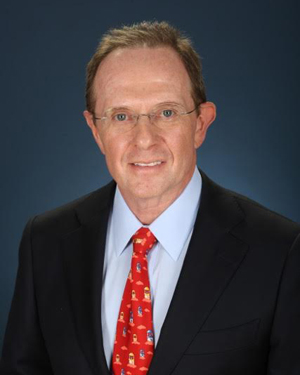Shoulder Fracture Specialist

Are you an athlete who participates in contact sports? If so, you may be at risk of separating your shoulder. A separated shoulder is typically caused by blunt trauma to the shoulder or by a fall onto the shoulder. Separated shoulder specialist, Dr. James Mazzara provides diagnosis and both surgical and nonsurgical treatment options for patients in Manchester, South Windsor, Enfield, Glastonbury and surrounding Hartford communities who have suffered a shoulder separation. Contact Dr. Mazzara’s team today!
What is a Shoulder Fracture?
There are three bones in the shoulder that can break, crack or fracture: the clavicle, scapula (shoulder blade) or humerus (upper arm bone.) Many people in their lifetime will experience a shoulder fracture. It is a common injury caused by a direct blow to the area, sports collision, work accident or automobile accident. Dr. James Mazzara, orthopedic shoulder specialist serving the Manchester, South Windsor, Enfield, Glastonbury and surrounding Hartford communities is highly experienced in treating this type of injury and returning patients to an active lifestyle.
Dr. Mazzara classifies a shoulder fracture by the specific bone in the shoulder that is broken. These classifications are called:
- Clavicle Fracture – Also called the collar bone, the clavicle is the long thin bone that begins at the base of the neck and extends to the shoulder. It is the most common bone to break in the shoulder.
- Humerus Fracture – The humerus is the long bone of the upper arm that runs from the shoulder to the elbow.
- A proximal humerus fracture occurs at the top or just below the humeral head – which is the ball that rests in the shoulder’s socket.
- A humeral shaft fracture affects the middle portion of the long arm bone
- A distal humerus fracture affects the bottom end of the bone, near the elbow.
- Scapula Fracture – Shoulder blade break or fracture – the scapula is the flat, triangular bone located in the upper back. A scapula fracture may result from a contact sport, such as football, or a traumatic event, such as a car accident. Scapula fractures are rare, given the impact needed to fracture the bone. Only 1% of all fractures are of the scapula itself and only 3%-5% of all shoulder fractures.
Fractured shoulders are further classified as being displaced or non-displaced. A displaced fracture is when the broken bone is separated and no longer in the correct anatomical position. A displaced shoulder fracture may require a certain level of manipulation to restore normal anatomy and is often done through surgery. A non-displaced shoulder fracture is when the broken bone pieces line up correctly on each side of the break.
What are the Symptoms of a Shoulder Fracture?
- Intense shoulder pain
- Inability to move the shoulder or the arm without pain
- Bruising or skin discoloration around the break
- Swelling of the shoulder area
- Tenderness in the shoulder joint
- A disfiguration or a bump at the site of the break, under the skin
How is a Shoulder Fracture Diagnosed?
If a shoulder fracture is suspected, urgent evaluation at an emergency room or urgent care facility should be considered. X-rays will typically show a break, but in more serious cases 3-D imaging may be necessary. Shoulder specialist Dr. James Mazzara may suggest a repeat x-ray, MRI or CT Scan to fully assess the fracture pattern and if there is any other damage to the shoulder.
What Treatment is done for a Fractured Shoulder?
Non-surgical
Non-displaced shoulder fractures can often be treated without surgery. If Dr. Mazzara makes the assessment that a bone fracture will heal and return good shoulder function to the patient without surgery, a non-surgical approach will be recommended. Initial treatment might include pain medication and a simple sling to immobilize the shoulder joint. Once the bone has healed, physical therapy will be recommended for patients in the Manchester, South Windsor, Enfield, Glastonbury and surrounding Hartford communities.
Surgical
Surgery may be recommended in more severe shoulder fracture cases with significant displacement of the bone. Shoulder fracture surgery is also suggested for fractures that do not heal, to eliminate the risk of arthritis and to promote healing and more rapid restoration of function.
Dr. Mazzara is extremely skilled in numerous shoulder surgery techniques associated with treating a shoulder fracture. He may recommend arthroscopic surgery to perform fixation of the joint, or he may suggest open surgery for an open reduction and internal fixation. Open surgical reduction requires that the skin be opened at the fracture site and the bones are realigned, then pinned or plated back together. The appropriate surgery technique will depend upon the patient’s level of activity, age and severity of the injury.
If you live in Manchester, South Windsor, Enfield, Glastonbury and surrounding Hartford communities and would like further information regarding shoulder fractures and their treatment, please call the office of orthopedic shoulder specialist, Dr. James Mazzara.
